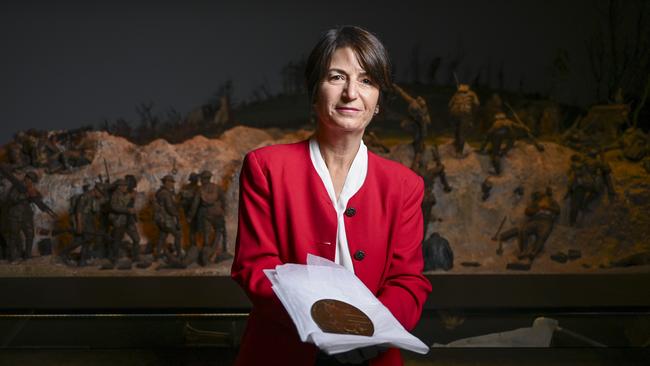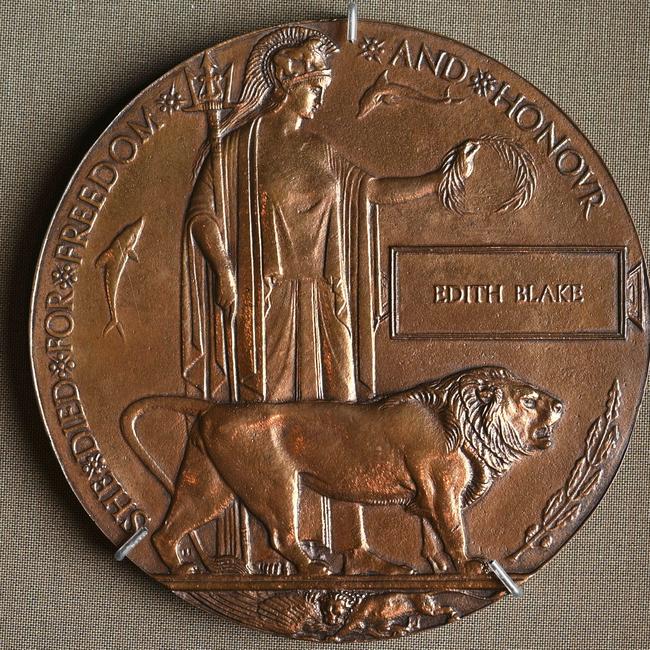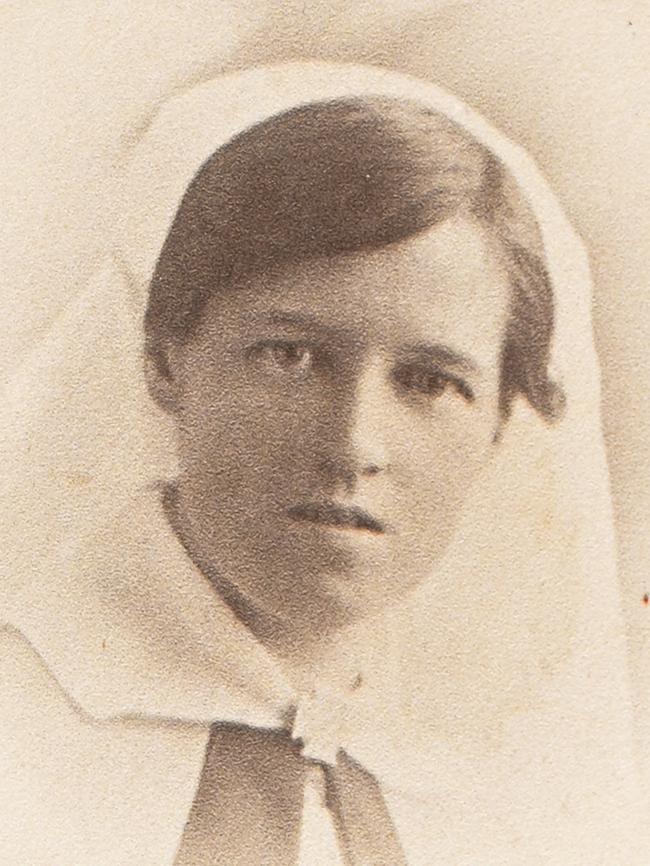Last post honours for trailblazing World War I nurse Edith Blake
Edith Blake, the only Australian woman to be killed in action during World War I, has been remembered for her service in a last post ceremony at war memorial.

World War I nurse Edith Blake felt torn between pity and vengeful hatred when she thought of the German prisoners of war she cared for, telling her family in letters home that at times she could “screw all their necks”.
She had no way of knowing her words would 107 years later be read by family members she would never meet. Or that just one year later she would be killed when her ship was torpedoed by a German U-boat.
Blake, the only Australian woman killed in action in World World I, will be honoured in a Last Post ceremony at the Australian War Memorial on Saturday.
The Sydney-based nurse was selected to join the British Queen Alexandra’s Imperial Military Nursing Service in 1915, and spent 18 months in Egypt before nursing German prisoners of war in Surrey in England.
Blake died when the well-lit hospital ship, Glenart Castle, was torpedoed in the Bristol Channel on its way to Brest in France on February 26, 1918.
Her name is listed on the commemorative roll, alongside the names of Australians who died during or as a result of war service.
Blake’s great-niece, Krista Vane-Tempest, has kept the wartime nurse’s legacy alive and will be among a group of as many as 30 relatives at the ceremony on Saturday.
“Anytime that we can see the contribution of women in times of war recognised, it’s really important,” Ms Vane-Tempest said.

“From a family perspective, it’s a really wonderful thing. But I think, more broadly, it’s special that a woman’s effort is being recognised.
“Because war is very much seen as a man’s world. It certainly was in those days.”
Ms Vane-Tempest is a guide at the Australian War Memorial, where her great-aunt’s memorial plaque – referred to colloquially as a “dead man’s penny” because it was given to the next of kin of those killed in WWI – is displayed.
The plaque is rare because it is inscribed with the words “she died for freedom and honour”. Fewer than 40 Australian women died in active service in WWI on behalf of the British empire, including 24 nurses serving for Australia and 10 to 15 in the British units.
About 60,000 Australian men died in active service in WWI, meaning the proportion of male-to-female plaques is about 1500 to one.
Ms Vane-Tempest has written a book about her great-aunt, and has drawn inspiration from her courage and tenacity throughout her life.
“She knew that there was danger, particularly serving on the hospital ships, but she had skills that she knew she could be useful,” Ms Vane-Tempest said.
“And she just worked so hard, but she was resilient.
“So even when she felt down and tired and exhausted, she just kept going. She just enjoyed taking a good, big bite out of life.”
Blake’s letters have immortalised the nurse’s experience of war, including her “mixed” feelings towards caring for enemy soldiers amid a fierce German bombing campaign that killed hundreds of civilians.

“I don’t think anybody resented nursing Huns (Germans) more than we did when we first came here,” Blake wrote on June 27, 1917.
“But poor beggars, when you see them downhearted, and when they get their home letters for they are not as cheery as our boys, and they sometimes drop a few tears, we can’t help feeling the kindred spirit that makes us wondrous and kind.
“And yet, when you hear of the raids in London and loss of non-combatant life, you feel you could screw all their necks.
“And we know that the Germans would poison the air we breathe, only they would have to breathe it themselves.”
Australian War Memorial director Matt Anderson said Blake was among many Australian nurses who rushed to sign up to serve after WWI broke out, seeking to enlist twice before she was selected to serve in a British nursing unit.
“Of the 182 people on board HS Glenart Castle on the 26th of February, 1918, only 29 survived,” he said.
“All of the nurses on board were declared to have drowned with the vessel, including Staff Nurse Edith Blake.”
The Last Post ceremony is held at 4.30pm every day except Christmas Day at the Australian War Memorial, with only a handful of women’s stories commemorated each year.




To join the conversation, please log in. Don't have an account? Register
Join the conversation, you are commenting as Logout